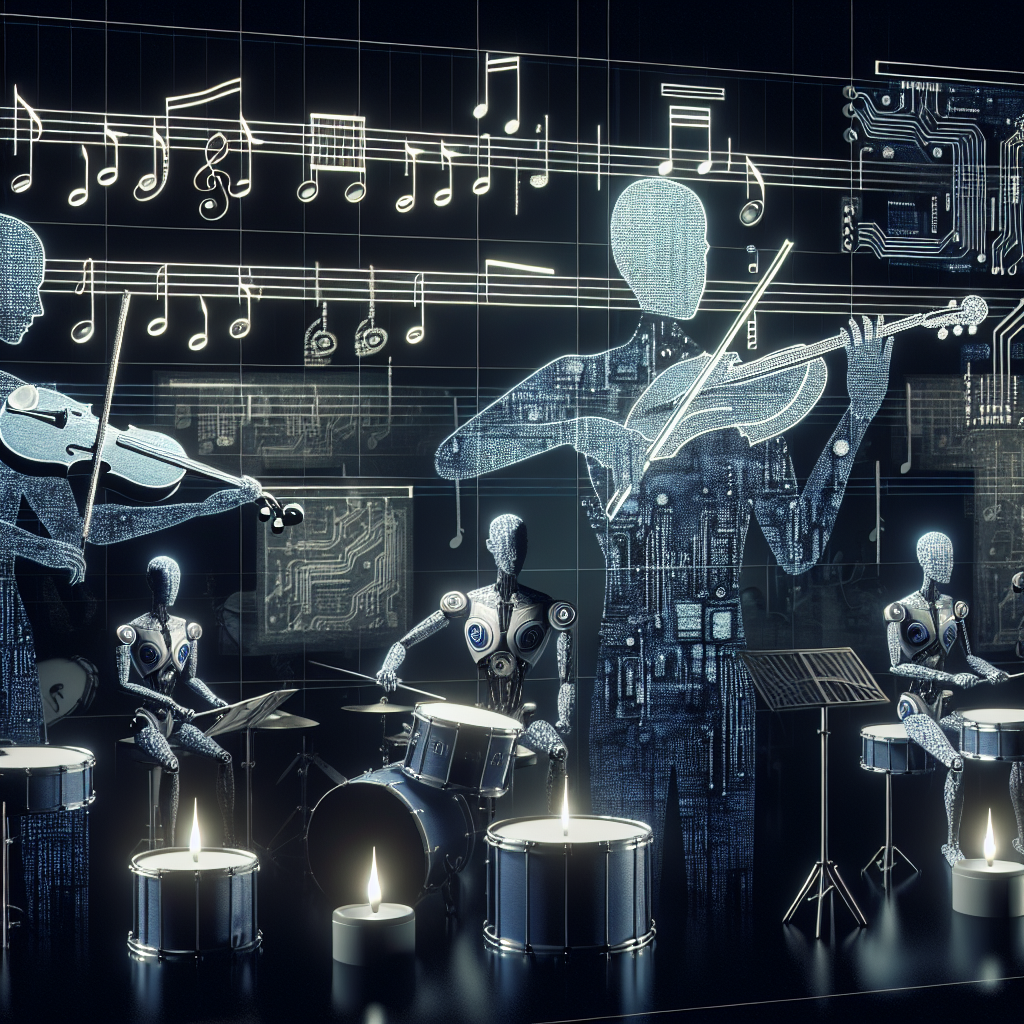The integration of artificial intelligence (AI) in music has revolutionized the way music is composed, produced, and performed. AI technology has opened up new possibilities for musicians and composers, allowing them to explore new creative avenues and push the boundaries of traditional music-making. From composition to performance, AI has made a significant impact on the music industry, transforming the way music is created and experienced.
Composition
One of the most fascinating applications of AI in music is in composition. AI algorithms are capable of analyzing vast amounts of musical data and generating original compositions based on patterns and structures found within that data. This has led to the development of AI-generated music that is indistinguishable from human-created compositions.
AI composers like AIVA and Amper Music are leading the way in the field of AI-generated music. These platforms use complex algorithms to compose original music in various genres and styles, providing composers with a wealth of creative possibilities. AI composers can generate music for films, video games, commercials, and other media, offering a cost-effective and efficient alternative to traditional composition methods.
AI-generated music has also given rise to new forms of experimental music that challenge traditional notions of composition and performance. Musicians and composers are exploring the creative potential of AI-generated music, incorporating it into their work to create innovative and boundary-pushing compositions.
Performance
AI technology has also transformed the way music is performed. AI-powered tools like virtual instruments and digital audio workstations (DAWs) have revolutionized the way musicians create and perform music. These tools allow musicians to experiment with new sounds, textures, and effects, enhancing their performances and expanding their creative possibilities.
AI-powered music software like Ableton Live and Native Instruments’ Komplete Kontrol have become essential tools for musicians and producers, offering a wide range of features and capabilities that enhance the music-making process. These tools allow musicians to manipulate sounds, create complex arrangements, and experiment with different musical styles, providing them with a level of creative control that was previously unimaginable.
AI technology has also revolutionized the way music is performed live. AI-powered tools like Ableton Live and Native Instruments’ Stems have made it possible for musicians to perform complex arrangements and compositions in real-time, creating immersive and dynamic live performances that captivate audiences.
FAQs
Q: Can AI compose music that is as good as music composed by humans?
A: AI composers like AIVA and Amper Music are capable of generating original compositions that are indistinguishable from human-created music. While AI-generated music may lack the emotional depth and nuance of human-created compositions, it can be just as technically proficient and creative.
Q: How is AI used in music performance?
A: AI-powered tools like virtual instruments, digital audio workstations, and live performance software have revolutionized the way music is performed. These tools allow musicians to manipulate sounds, create complex arrangements, and experiment with different musical styles, enhancing their performances and expanding their creative possibilities.
Q: What are the benefits of using AI in music composition and performance?
A: AI technology offers a range of benefits for musicians and composers, including increased efficiency, creative possibilities, and cost-effectiveness. AI-powered tools can analyze vast amounts of musical data, generate original compositions, and enhance live performances, providing musicians with new ways to explore and express their creativity.
In conclusion, AI technology has transformed the music industry, from composition to performance. AI-generated music has opened up new creative possibilities for musicians and composers, while AI-powered tools have revolutionized the way music is created and performed. As AI technology continues to evolve, it will undoubtedly play an increasingly important role in the future of music, shaping the way we create, experience, and appreciate music.

